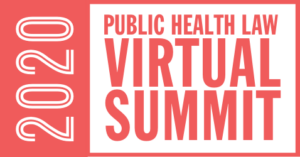
The Crisis for Marginalized Populations
Concurrent Session Block 3: 12:00 – 1:00 p.m. ET Thursday, September 17
Presentations
COVID-19, Incarceration, and the Criminal Legal System
The COVID-19 crisis has magnified the deleterious public health impact of policing, prisons, community supervision, and other elements of the United States’ vast system of control and punishment. As police are taking on enforcement of physical distancing and other public health orders, prosecutors are criminalizing infection spread. Even as COVID-19 is bolstering its power, the criminal legal system is resisting changes necessary to facilitate pandemic response, instead fueling its spread. Despite the scientific consensus that prisons and jails must be rapidly depopulated to avert disaster, the number of people released has remained small, resulting in explosive outbreaks of COVID-19 behind bars. With a focus on incarceration, this session will provide an overview of how the US carceral system shapes its COVID-19 response along with the current debate about divestment from structures of social control in favor of a renewed focus on the social contract.
- Leo Beletsky, MPH, JD, Professor of Law and Health Sciences and Faculty Director, Health in Justice Action Lab, Northeastern University
- Jessica Bresler, JD, Research Assistant, Center for Health Law and Policy
LGBT Communities in the COVID Pandemic
LGBT individuals suffer disproportionately in the COVID-19 epidemic. They are likely to be exposed to COVID-19 in greater numbers and suffer to a greater degree if they contract the disease. They are more likely to lose access to essential medical services, including gender confirmation and HIV medications. They are likely to suffer economic harms to a greater degree, since they are more likely to work in industries with exposure to, and likely to close because of COVID-19. They also are more likely to experience mental and emotional harms arising from the isolation, or sheltering-in-place COVID-19 necessitates. Finally, when LGBT individuals seek assistance from elsewhere, including through social services, homeless shelters, and welfare, they often suffer discrimination. All these harms fall even more disproportionally on LGBT people of color and transgender individuals. This session will discuss the protections that policymakers must put in place to combat these harms and ensure that LGBT organizations that provide critical services in a safe space remain funded and open.
- Craig J. Konnoth, M.Phil., J.D., Associate Professor of Law, University of Colorado School of Law